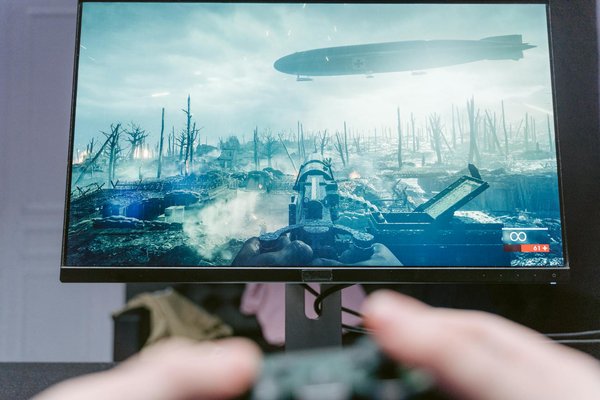Evidence-Based Effects of Video Games on Cognitive Development in Children
Recent scientific studies on gaming have provided compelling evidence regarding the influence of video games on children’s cognitive development. These studies consistently show that engaging with video games can lead to significant improvements in various cognitive skills. The relationship between video games and cognition is complex but promising, revealing that not all gaming impacts cognition equally, with certain game types offering more benefits.
Key cognitive skills that are positively affected include memory, problem-solving abilities, and sustained attention. For example, action video games have been shown to enhance visual attention and spatial reasoning, helping children process information more quickly and accurately. Puzzle and strategy games often improve a child’s capacity to think critically and solve complex problems, reflecting measurable gains in problem-solving skills from multiple research sources.
Experts analyzing these findings highlight that the improvements are not simply byproducts of entertainment but result from the mental challenges games pose. Video games require active engagement, decision-making, and adaptability, which promote cognitive flexibility. Moreover, repetitive gameplay strengthens memory retention as children memorize game tasks and strategies.
These conclusions are drawn from controlled experiments and longitudinal studies, reinforcing the view that video games and cognition are linked through pathways that enhance brain functions crucial for academic and everyday success. Continued research is necessary to refine understanding of which game mechanics optimize cognitive skills improvement in children.
Benefits of Video Gaming for Cognitive Skills
Video games offer significant cognitive benefits, enhancing skills such as memory, attention, and problem-solving. Research consistently shows that engaging with certain types of video games can lead to measurable improvements. For example, action games improve visual attention and spatial awareness, while puzzle and strategy games enhance problem-solving abilities and working memory.
One well-known example is the game Portal, which challenges players to solve complex spatial puzzles. Players develop better planning and reasoning skills through repeated gameplay. Similarly, Lumosity and other brain-training games are designed specifically to boost cognitive functions like memory retention and processing speed.
Experts in neuroscience and psychology frequently highlight the connection between video games and learning. Dr. Daphne Bavelier, a leading researcher, demonstrates that fast-paced video games can sharpen players’ attention and multitasking capacities. Positive outcomes extend beyond individual skills; studies show improved academic performance in players who engage regularly in cognitively demanding games.
Overall, these examples of positive outcomes illustrate how video gaming, when approached thoughtfully, can serve as a valuable tool for cognitive development across various age groups.
Potential Drawbacks of Video Game Use in Children
Excessive screen time risks associated with video game use in children are a growing concern among parents and health professionals. Extended periods spent gaming can lead to negative effects such as addiction and reduced physical activity. This sedentary behaviour may contribute to obesity and other health issues, impacting a child’s overall well-being.
Regarding the impact on child development, excessive gaming has been linked to attention difficulties and impaired social interactions. Some studies suggest potential cognitive drawbacks, including reduced academic performance and challenges with emotional regulation. Behavioural problems like increased aggression or irritability have also been reported in cases of high-intensity gaming.
However, it is important to understand that these risks can often be mitigated by setting appropriate limits and encouraging balanced activities. Striking a balance between gaming and other forms of physical and social engagement can help maximize benefits while minimizing negative effects on child development.
Recommendations for Healthy Video Gaming Habits
Maintaining healthy gaming practices starts with setting clear limits and carefully selecting games suitable for children. Parents and educators are central to creating an environment where gaming is balanced with other essential activities like homework, physical exercise, and social interaction. Establishing daily or weekly time boundaries helps prevent excessive screen time, promoting well-rounded development.
Choosing age-appropriate and content-appropriate games is equally important. Games that encourage problem-solving or creativity can be beneficial, while violent or overly competitive games might negatively impact some children’s behavior. Continuous parental guidance ensures the gaming content aligns with family values and supports positive growth.
The role of parents and educators goes beyond supervision—they should actively participate in gaming, discuss game content, and model healthy habits. Encouraging children to share their gaming experiences opens communication lines, helping identify any issues early. Overall, the key recommendations for children involve structured playtime, mindful game choices, and fostering open dialogue for a balanced, healthy gaming lifestyle.
